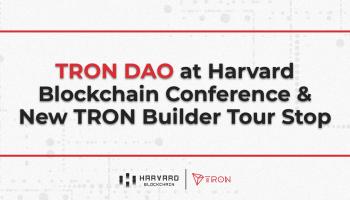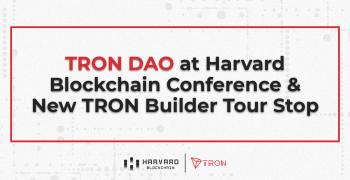 Op-Ed: Virtual real estate is booming: Benefits of buying properties in the metaverse
Op-Ed: Virtual real estate is booming: Benefits of buying properties in the metaverse Op-Ed: Virtual real estate is booming: Benefits of buying properties in the metaverse
Currently virtual real estate us full of opportunities, but as with regular properties proper guidance is needed

Cover art/illustration via CryptoSlate. Image includes combined content which may include AI-generated content.
The metaverse is a booming industry, with artists, musicians, and numerous companies from different industries eager to jump on the bandwagon. That said, who would have imagined back then that investment giants, fashion brands, tech corporations, and the everyday user would be using digital assets to buy virtual properties on blockchain-based metaverse?
Some of them have already jumped in: from Meta, Microsoft, and other IT giants, to fashion brands like Gucci, and even multinationals like Adidas and Pepsico are setting up shops in the metaverse by buying or leasing properties.
New Opportunities for Real Estate Agencies
Metaverse real-estate agents and companies buy land plots on blockchain-based ecosystems such as Sandbox and Decentraland and lease them to other companies or individuals interested in diving into the virtual reality space.
However, various problems remain in this market, the biggest is that several businesses and individual investors still don’t understand this space and its technology. Luckily, numerous metaverse real-estate agents can guide every purchasing stage, just like they do with real-life properties.
Benefits of Virtual Real Estate
While metaverse properties are still somewhat in their early years, prices have been surging steadily, considering the popularity of NFTs (Non-Fungible Tokens) in general. As such, the parcels of land are NFTs, a type of digital asset stored on the blockchain.
People who are not tech-savvy don’t have to worry about this process, as the technology behind NFT protocols automatically does it for us. For example, on OpenSea — the largest NFT marketplace by sales volume — anyone can turn a digital file, whether a jpeg or mp4, into an NFT by minting it, which is a very intuitive and straightforward process that consists of making a few clicks.
Real estate companies can also use these marketplaces to buy land plots from different metaverses, the most popular ones being Sandbox and Decentraland. The land plot is stored on their blockchain address, giving them complete control and ownership of the asset.
Lands parcels within metaverses are already tokenized, of course, registered in their respective blockchain. Thanks to the transparent nature of blockchain technology, anyone can view the transaction history behind them, who the owners are, and how much it’s currently worth.
The opportunities are vast, and we can compare physical versus virtual real estate, the main differences being:
- Virtual real estate purchases are made directly —no middleman is needed
- Unlike physical real estate, parcels of land can be purchased with cryptocurrency.
- Once purchased, ownership is transferred to the buyer automatically on the blockchain.
Additionally, instead of just buying or selling houses or condos within the metaverse and renting them, anyone can construct virtual commercial sites —like malls or offices and rent them to real-world companies.
This is already happening, and we have witnessed it with Republic Real — one of the largest NFT institutional investors and virtual real estate companies. To date, it owns more than 2000 virtual lands across 16 metaverses.
What We Should be Aware of When Buying Digital Land
Like physical real estate, anyone looking to buy virtual properties needs to consider location, size, and land scarcity. Certain districts in metaverse ecosystems are better depending on location, as businesses can create marketing campaigns that reach out to broader traffic.
It’s not only about advertisements, though. Certain players in this field are taking it to the next level: Adrien Cheng — CEO of New World Development, bought one of the largest land plots in Sandbox. He plans to create a “megacity” to develop an innovation hub for tech and business startups.
A Booming Industry With Many Opportunities
In essence, the metaverse is just another path that companies and businesses are exploring to reach out to more customers. With the advent of the digital economy, it makes sense to do so. The global metaverse market is currently over 500 million, and experts forecast the industry to be over 1 billion by the next 5 – 10 years.













































